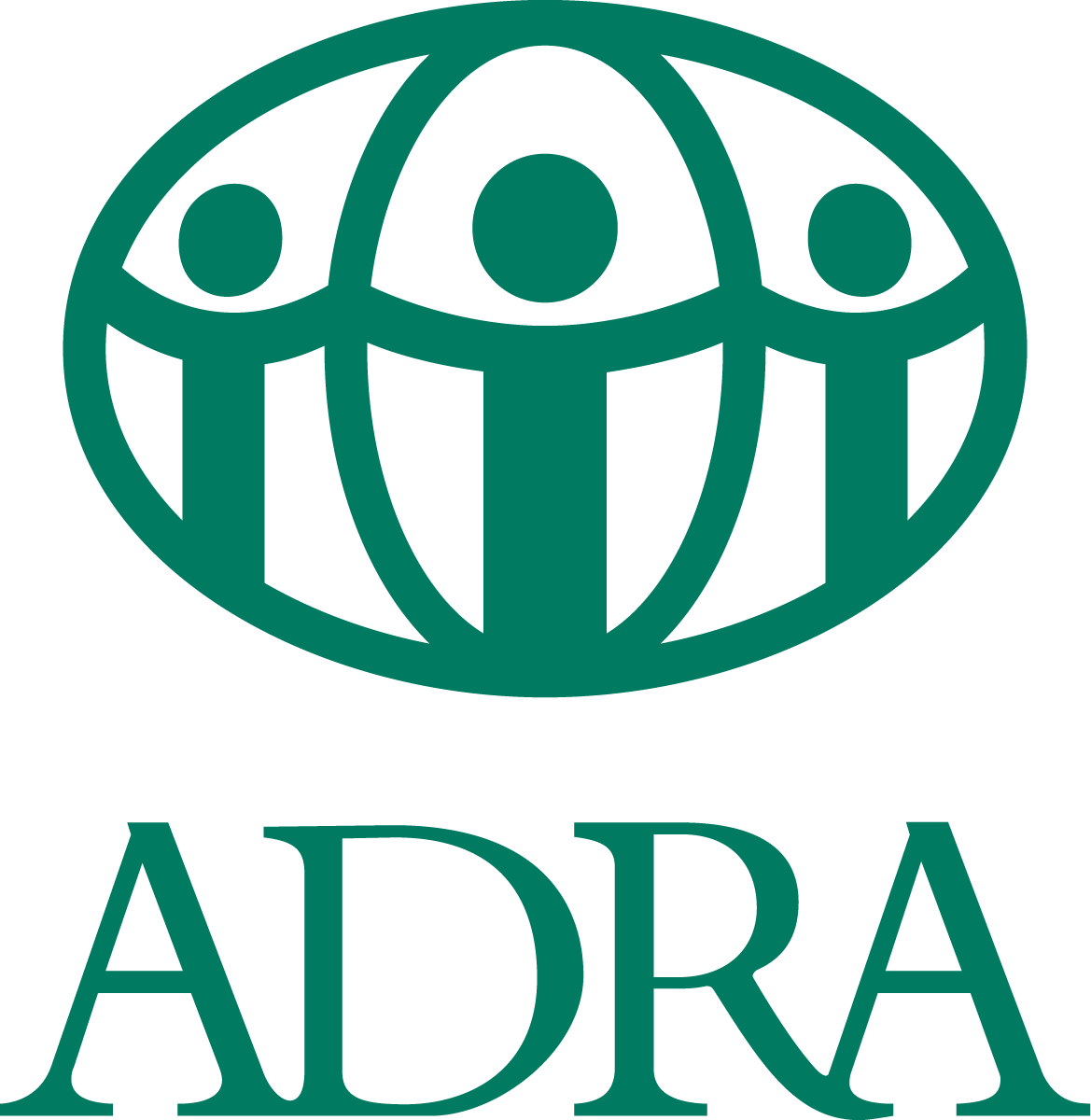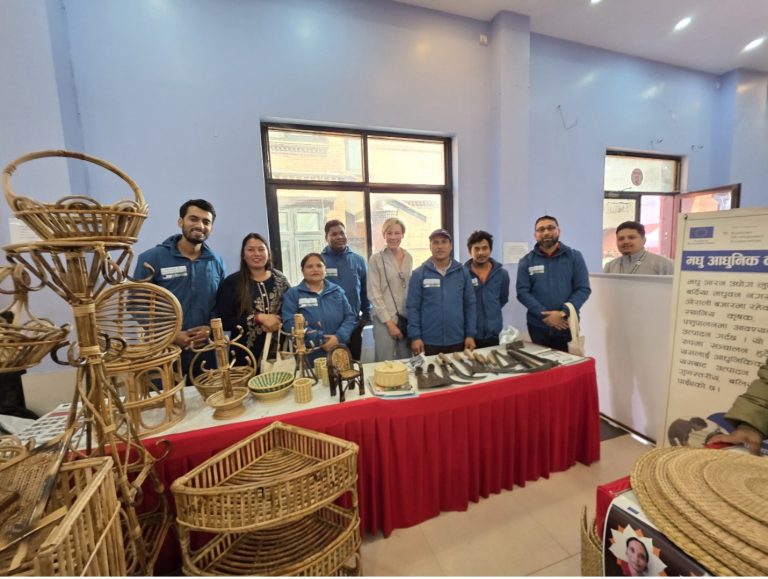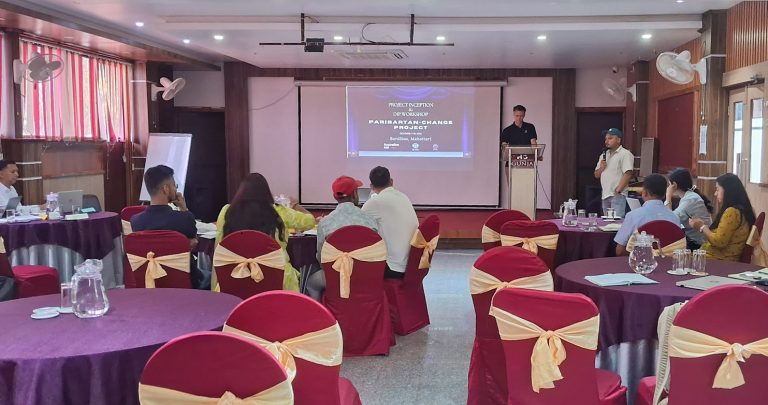Livelihoods
Breaking the Cycle of Poverty
Poverty often means households lack the income to meet their basic needs—safety, food, shelter, health, and education. Cultural and social norms can also prevent people, particularly women and marginalized, from attempting income-generating activities. Further, the impact of climate change has made the livelihoods still worse.
When people have the skills, resources, and opportunities to increase their income with dignity, poverty loosens its hold. ADRA Nepal works alongside communities to enhance food security and develop sustainable livelihoods through their engagement in improved climate adaptive farm based, forest based and off-farm enterprises that give families security.
What we do
ADRA Nepal supports vulnerable communities—particularly marginalised groups and women—to access better livelihood opportunities by:
- Providing hands-on training in agricultural and livestock tools, technologies, and practices that increase yield and sales.
- Introducing innovative practices to improve resilience to climate change.
- Enterprise development, vocational/skill-based training, startup support, and financial literacy.
- Connecting smallholder farmers to value chains through Farmer Market Schools and market interventions.
- Facilitating savings and credit groups and cooperatives strengthening.
- Delivering climate change education, GEDSI education/awareness and resiliency actions in schools, communities and among stakeholders.
- Helping forest communities manage resources to maintain biodiversity while meeting their needs.
- Supporting farming communities in finding solutions to human–wildlife conflict.
- Enabling people with disabilities to start sustainable enterprises.
- Developing community facilities such as multi-use water system, irrigation and recharge ponds, resource centers, collection centres, etc.
- Policy advocacy.
IMPACT 2024
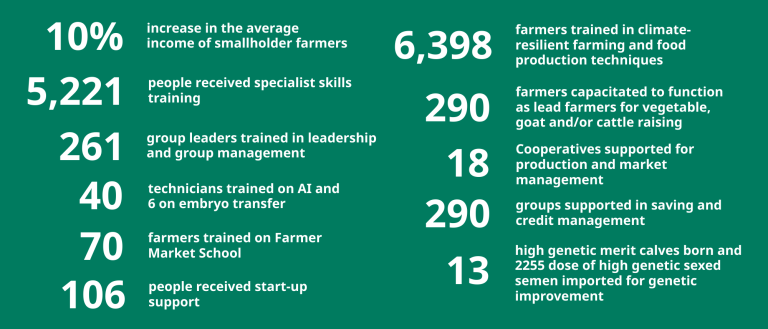
PROJECTS
RELIEF
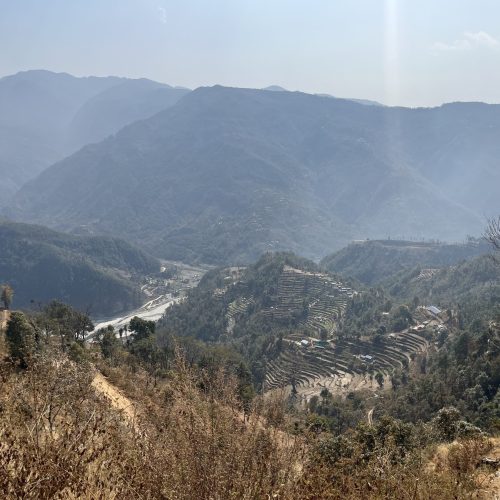
The RELIEF (Resilient Livelihood and Enhanced Food Security in Northern Dhading) project will directly work with 1,600 households, the majority of which belong to ethnic minorities and underprivileged people, such as Tamangs and Dalits. The main objective of the project is to improve food security and climate resilience of the community by increasing food availability, accessibility, and income diversification while strengthening climate adaptive capacity through gender-sensitive project actions. We are working with local partner PRAYAS Nepal. The project is funded by the Canadian Foodgrains Bank and ADRA Canada and will run from January 2024 to December 2026, spanning three years focusing on remote Rural Municipalities in Dhading district.
Samvardhan
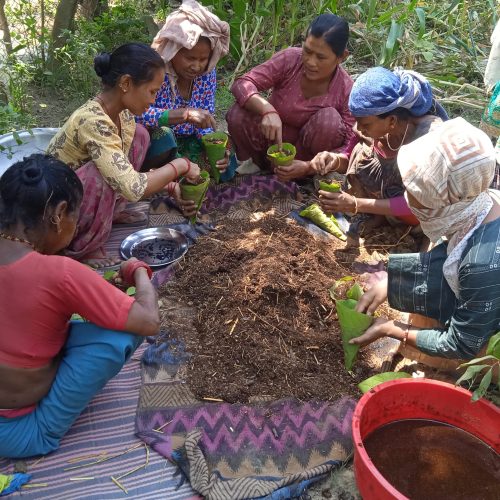
Project Samvardhan is a 4-year project aimed at conserving the ecosystem and biodiversity of key forest areas in Banke and Bardiya districts, while enhancing the livelihoods of the poor marginalized Dalit and Janjati forest-dwelling communities who rely on forest resources for their daily living. The project will work with forest user groups, farmer groups, civil society organizations, and public and private stakeholders in the conservation, sustainable utilization, and restoration of biodiversity and ecosystems. Project Samvardhan is funded by the European Union, Austrian Development Cooperation via ADRA Austria and implemented by ADRA Nepal and partners ANSAB Nepal, BEE GROUP and FECOFUN.
TERAI
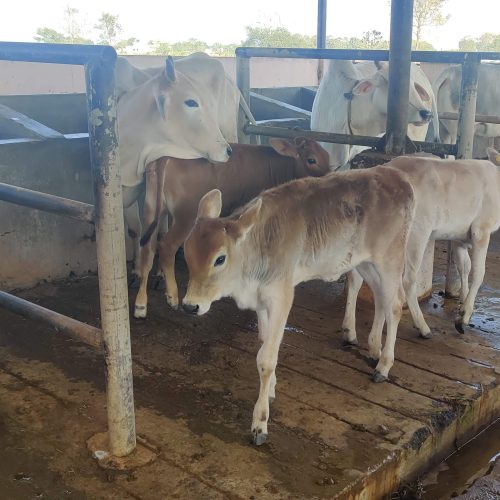
The Enhanced Rural AI (TERAI) Project for Smallholder Dairy Farmers in Nepal will run from 2022 – 2026 and will work with smallholder farmers in four local governments of Rupendehi and Kapilvastu districts. It is funded by Jersey Overseas Aid and implemented by ADRA Nepal in partnership with Forum for Rural Welfare and Agricultural Reform for Development (FORWARD Nepal) and Indreni Rural Development Centre.
It aims to reduce poverty and improve the livelihoods of smallholder farmers through increased income and resilience dairy farming. The project will directly benefit 3,600 farmers and over 17000 people indirectly by enhancing farming practices (health care, breed, nutrition and housing management of animals) and techniques to improve milk output, collection and processing as well as improving business and connecting them to the actors of milk value chain and markets.
